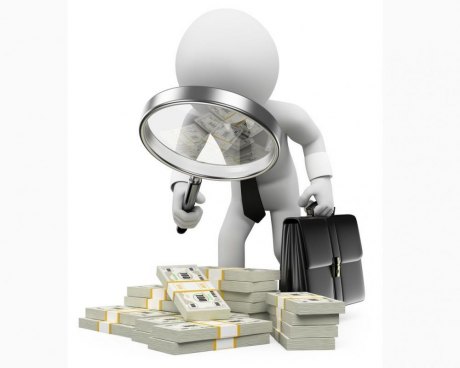Inspectors general: Endangered watchdogs

At the time, Linick had been investigating possible misuse of government funds within the State Department. NBC News reported May 20 that elaborate dinners hosted by Mike Pompeo, U.S. secretary of state, had been paid for with State Department funds.
Pompeo said the firing was his idea because Linick was undermining the State Department. But Rep. Eliot L. Engel, D-N.Y., chairman of the U.S. House Committee on Foreign Affairs, released a statement contending that "Mr. Linick’s firing amid such a probe strongly suggests that this is an unlawful act of retaliation."
An inspector general's work often ruffles feathers. Indeed, Trump has fired three others:
- April 3: In another Friday night announcement, Trump fired Michael Atkinson, inspector general of the intelligence community. Atkinson had alerted Congress to a whistleblower's complaint accusing the president of soliciting foreign interference in the 2020 election, Business Insider reports.
- April 7: Trump ousted Glenn Fine, acting Pentagon inspector general. This meant Fine would no longer chair the Pandemic Response Accountability Committee, tasked with overseeing $2 trillion in emergency coronavirus funding, CNN reported.
- May 1: Trump fired acting U.S. Department of Health and Human Services Inspector General Christi Grimm. Grimm chronicled testing delays and shortages of supplies during the coronavirus pandemic, National Public Radio noted.
Background: Distrust in government had grown during the presidency of Richard Nixon (1969-1974). Corruption in the administration was revealed after the arrest of five burglars at the Democratic National Committee headquarters in the Watergate office complex in Washington. Nixon resigned from office in 1974 rather than face impeachment as a result of the scandal.
When he left, his vice president, Gerald Ford, took office. But during the presidential election in 1976, Ford was defeated by Jimmy Carter, a clean-cut governor from Georgia who made restoring trust in government a priority. He positioned himself as an outsider who could "clean up the mess in Washington," recounts Robert A. Strong, professor of politics at Washington and Lee University in an article on the University of Virginia Miller Center website.
The Inspector General Act of 1978: The law was signed by Carter, who described the inspectors as “perhaps the most important new tools in the fight against fraud,” according to the website for the Council of the Inspectors General. Carter charged inspectors general to remember that their responsibility was "not to any individual but to the public interest."
In signing the bill into law, Carter remarked, "I think it's accurate to say that the American people are fed up with the treatment of American tax money in a way that involves fraud and mismanagement and embarrassment to the government."
The goal: The act sought to have an impartial person carry out investigations and audits to "promote economy, efficiency, and effectiveness in the administration of, and … prevent and detect fraud and abuse" in government operations.
Carter made it clear that the inspectors were to be active and assertive. "They will make their reports to the Attorney General if law violations are involved," he remarked. "They'll make frequent, periodic reports to the head of the agency. They'll make reports to the Congress. When they make a report directly to the Congress, the head of the agency cannot modify that report in any way. The head of the agency can append comments. These Inspectors General will be responsible for auditing, and they will be responsible for investigating any allegations of fraud or mismanagement."
How many inspectors are there? When the office was created, there were 12. Now there are 78.
Resources:
- The American Presidency Project, University of California, Santa Barbara: Inspector General Act of 1978 Remarks at the Bill Signing Ceremony, Oct. 12, 1978.
- Business Insider: In his resignation letter, fired inspector general Michael Atkinson urged whistleblowers to 'bravely speak up' and reminded them 'there is no disgrace in doing so,' by Sonam Sheth, April 6, 2020.
- CNN: Trump removes independent watchdog tasked with overseeing coronavirus emergency funds, by Zachary Cohen, April 7, 2020.
- Council of the Inspectors General on Integrity and Efficiency: Inspector General Act of 1978 as amended.
- Encyclopedia Britannica: Watergate scandal.
- National Public Radio: Trump moves to replace watchdog who reported medical shortages, by Jason Slotkin, May 2, 2020.
- U.S. House of Representatives Committee on Foreign Affrairs: Engel Statement on the Firing of Inspector General Linick, May 15-16, 2020.
- University of Virginia Miller Center: Jimmy Carter, Campaigns and Elections, by Robert A. Strong, professor of politics at Washington and Lee University.
Related:
Ranking the presidents, best to worst
Like us on Facebook and tell us what you think.

